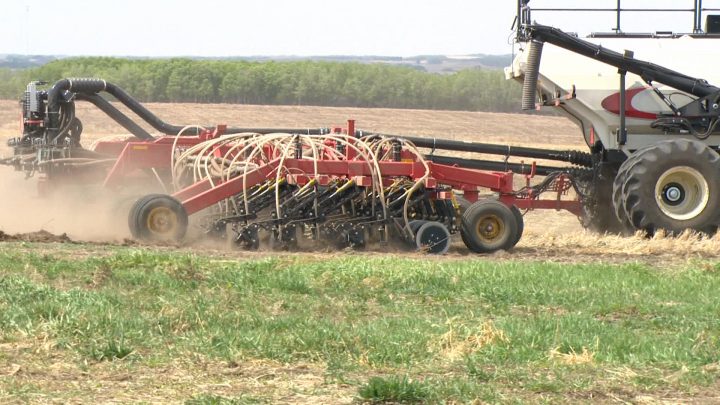Saskatchewan farmers have “raised the alarm” over picket lines at Co-op cardlocks in Moose Jaw, says the Agricultural Producers Association of Saskatchewan (APAS).

APAS is raising concerns over the disruptive access to rural fuel supplies, which is a result of the ongoing labour dispute between the Co-op Refinery Complex and Unifor.
“Our members have a very short window in which to seed our 2020 crop, and this year many producers are still racing to complete their 2019 harvest,” APAS president Todd Lewis said in a statement.
“In the face of COVID-19, we’re already dealing with a very tenuous food supply situation in Canada and around the world. The very last thing that farmers need right now is to have seeding compromised by not being able to get fuel.”
Cardlock stations are a primary source of fuel for many producers, said Lewis, who farms near Gray, Sask.
“In many cases, farmers replenish their fuel supply daily and travelling long distances to avoid picket lines is not an option,” Lewis said. “This is not a matter of convenience. It’s been a cool, wet spring in many areas, and producers are watching their window for optimum seeding conditions start to close.”
Spring seeding in Saskatchewan is currently behind the five-year average. According to the province’s crop report, seven per cent of the 2020 crop is in the ground, compared to nine per cent the year before.
- ‘Shock and disbelief’ after Manitoba school trustee’s Indigenous comments
- Several baby products have been recalled by Health Canada. Here’s the list
- Canadian food banks are on the brink: ‘This is not a sustainable situation’
- Invasive strep: ‘Don’t wait’ to seek care, N.S. woman warns on long road to recovery
A slow start to spring has delayed field operations in areas of the province, but most producers have indicated in the crop report that they will be out in the field within the next few weeks as fields dry up and soil temperature rises.
Kevin Bittman, president for Local 594, says its members were peacefully picketing in Moose Jaw and “not one truck was refused entry into the bulk station.”
“We want the farmers to understand that we don’t want to be doing this, but we have 730 families that are not working because of this lockout,” Bittman said.
APAS is asking both parties — Co-op and Unifor — to work together “to ensure that the critical fuel supply to Saskatchewan’s economic engine be maintained at this crucial moment in the growing season.”
“Saskatchewan producers are not in a position to weigh in on, or resolve the dispute between the union and management,” Lewis said. “But disrupting our essential fuel supply at a critical, time-sensitive period for agriculture is not to anyone’s advantage.”
Local 594 has called on the government of Saskatchewan to impose binding arbitration. Federated Co-operatives Ltd. has locked out over 700 employees of the Co-op Refinery for more than six months.
The government previously appointed a special mediator, but after 20 days of meetings, Co-op rejected the recommendations.
This led Co-op to present its last and final offer, with around 90 per cent of Local 594 members voting to reject it.
On March 25, Premier Scott Moe said during a press conference he would not call back legislature to impose binding arbitration.
“If that would be done it would be unprecedented is this province’s history, and I’m aware of very few cases, if any across Canada where that has actually occurred,” Moe said.
“This is a private-sector labour dispute that is occurring.”
The premier did state the Minister of Justice has reached out to both sides to have discussions “with what the next steps are.”
A division of Unifor represents some Global News employees.




Comments